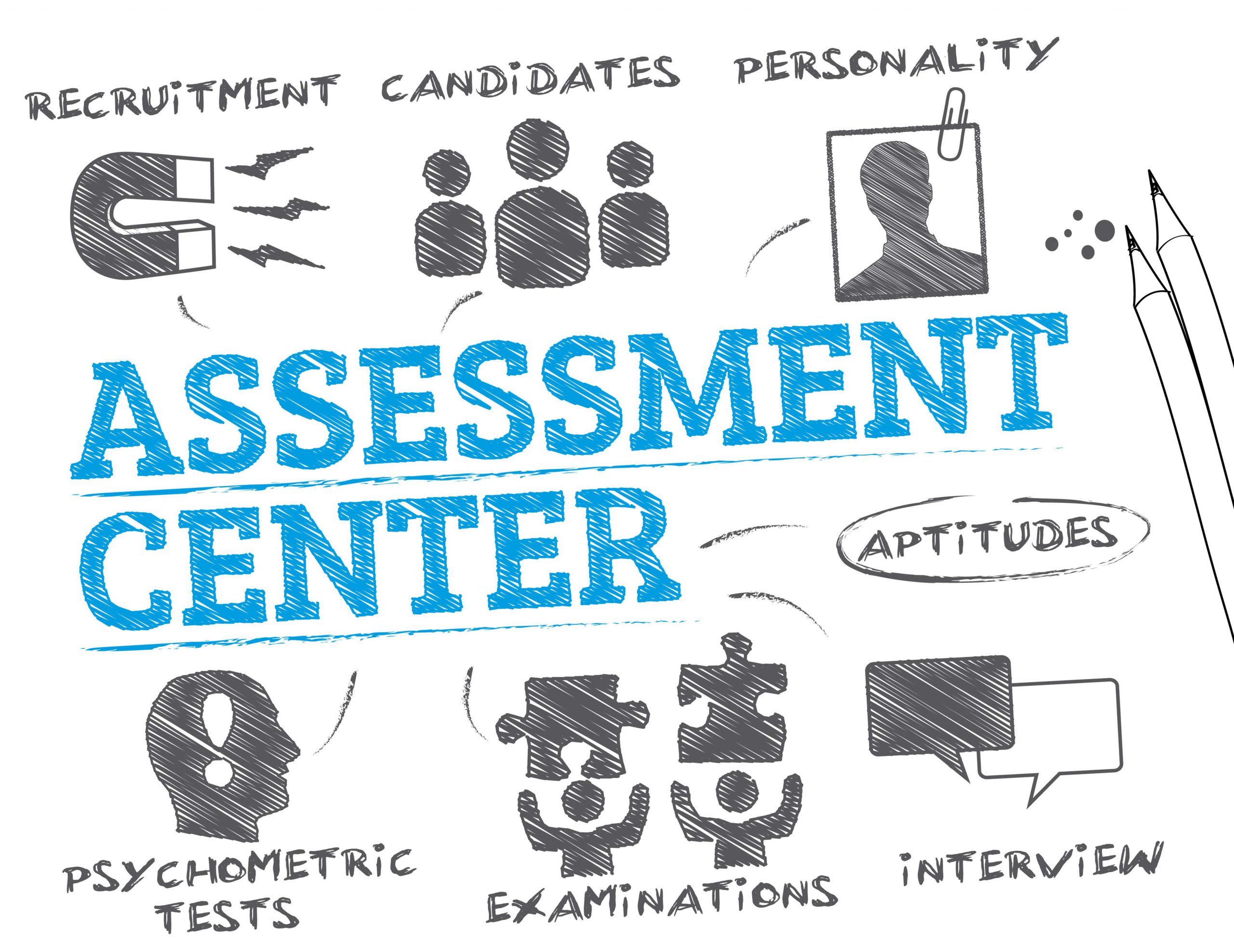A guide to candidates completing ability tests and other psychometric questionnaires.
Completing tests and selection interviews is likely to feature at some point in your life if you want to apply for higher education or for many jobs which require you to solve problems which are not straightforward. Investing time and effort in preparing for psychometric tests and interviews will enable you to perform better than you would without preparation.
Many test publishers have practice links for their online tests on their websites. The specialists at John Queripel Associates (JQA) help applicants to prepare for assessments and interviews, by giving specific test links to our candidates and strongly advising that practice should precede completing Ability Tests. The practice should preferably be a full parallel run of the Ability Tests which are going to be used in selection, matching for levels of difficulty, style of item and time limits that may apply.

What is Psychometric Testing in Recruitment?
Psychometric testing refers to a wide range of tests and investigations that can help recruiters determine a candidate’s suitability for a specific job role, as well as helping to give an idea of the individual’s growth potential.
There are a variety of ability tests available, including those which measure general intellectual functioning (such as Critical Reasoning Assessments) and those that measure specific aptitudes or abilities such as verbal, numerical, spatial, and abstract reasoning skills, and so on.
Educators and employers know that by investing in screening and assessment processes, they can achieve much stronger results for all their stakeholders in the long term. Experience has taught them that the costs of having people on the wrong career path or in a job they are ill suited to, are very high and damaging for the individual, for the organisation and for society as a whole. Many administrators and employers know that, in order to focus on the most appropriate way in which to select and develop people and match their aspirations to career opportunities, knowledge of their problem-solving preferences and thinking styles is important. Understanding their core emotional functioning, values, personal needs and drivers completes the picture of the whole person.
There are a variety of ability tests including those which measure general intellectual functioning such as critical reasoning assessments and those that measure specific aptitudes or abilities such as verbal, numerical, spatial, and abstract reasoning skills, and so on.
Why Would I Need to Complete a Psychometric Test?
Many administrators, employers and educators know that, in order to focus on the most appropriate way in which to select and develop people and match their aspirations to career opportunities, knowledge of their problem-solving preferences and thinking styles is important. Understanding their core emotional functioning, values, personal needs and drivers completes the picture of the whole person.
By utilising screening and assessment processes, they can achieve much stronger results for all their stakeholders in the long term. Experience has taught them that the costs of having people on the wrong career path or in a job they are ill-suited to are very high and can be damaging for the individual, for the organisation and for society as a whole.

How Do I Prepare for Psychometric Testing?
People react differently to the prospect of completing cognitive assessments. Most people experience a degree of worry and, providing it does not overwhelm them, this is not necessarily a bad thing.
The tests do not have any content based on specific previous learning, so there is no specific preparation, but they require careful thought. It is best to prepare by having a good night’s rest prior to completion. Factors such as tiredness, high anxiety, boredom, or depression can have an adverse impact on the results.
Adverse Factors and Disabilities
Candidates who are very anxious or who take medication or pharmaceutical preparations which affect alertness and concentration (especially those such as anti-depressants, which can impact memory or concentration) should advise the Test Administrator and discuss this before undertaking a test. Candidates previously diagnosed with dyslexia or related learning difficulties must also inform the administrator prior to taking ability tests. Administrators may make appropriate adjustments depending on disabilities.
Preparing Your Workspace
Candidates are usually provided with a link to the ability test by email, which will contain their instructions. Make sure you have a good internet connection, and we recommend you use Google Chrome as a browser. By logging onto the test administration site and completing the GDPR segment and the assessments, you are providing your consent for the results to be used for the purposes described in the correspondence from test administrators. Please advise the test administrators:
-
-
- If there are any of the above adverse factors affecting you before you start the assessment.
- If you have any concerns about the use of this information and how it will be stored.
- If you have any disability which you believe may affect the results.
-
While you need to be well prepared for the ability tests, there is less need to prepare for the personality questionnaires, which cover your preferences when it comes to likes and dislikes, dispositions, and values. Don’t think for too long about any of the questions; usually, your first, spontaneous response is right for you. There are measures built into the questionnaires that show whether respondents have answered them in a straightforward way.
How Do People Respond to Psychometric Tests?
People respond in many different ways to tests or interviews, depending on their emotional and intellectual makeup and their previous experience when under examination pressure. Here are two examples of different reactions:
Athena: Loves puzzles and “mind twisters” and has always been a grade “A” student in a school which had a very strong record of sending their top students on to internationally recognised Universities. She is looking forward to the selection process, confident that, like all other challenges she has faced, this will be yet another opportunity to compete and succeed. She is confident that she can unravel problems quickly and does not see much point in doing a lot of preparation.
Bruce: Had a disrupted education and often found schoolwork unpleasant and distressing. He could not wait to get out into the real world. Life was a struggle for his family, and he went to schools with large class sizes and teachers who came and went. His first thoughts when faced with any tests are: “I am no good at this.” Now, he faces something that revives the old feelings of frustration sitting a Maths test which was his worst subject, and not knowing where to start. As Bruce takes up the challenge of doing the preparation and goes through the sample items, he equips himself for the tests. He surprises himself that he can work things out if he steadies his nerves and makes progress. Understanding that thinking takes a lot of energy, he decides to ensure he is fed and well rested. The feedback he receives from the practice items helps him to avoid guessing and focus on the problem content by asking questions like: ‘What is important?’ ‘How are things linked?’ ‘Does A cause B or C?’. He gives himself time to think, perseveres, skips those items which elude him to come back if there is time at the end. He now thinks: “Hold on a minute, I can do this.”
What Do Psychometric Tests Measure?
Psychometric tests are developed by specialist test designers and are subject to rigorous testing to ensure they are reliable (consistently measure the constructs) and valid (measure what the test purports to measure). At JQA, we take our standards from the British Psychological Society. Their Psychological Testing Centre provides additional context and information.
At JQA, we want all our candidates to perform at their best, and we try hard to ensure that the circumstances support your best performance. This is particularly true for ability tests, which are attainment or aptitude tests known as measures of “maximum performance”. Personality questionnaires designed to assess personal qualities, such as traits, beliefs, social competence, values, and interests are known as measures of “typical performance”.
Common Types of Psychometric Testing
Psychological Testing
Psychological testing is used to assess intellectual ability, personality traits or behaviour, in many contexts, including:
-
-
- Business
- Education
- Clinical Mental Health
- Counselling
- Forensics
- Experimental Psychology
-
The use of psychological testing underpins economic growth in business because test results can be helpful tools if they are used appropriately.
At JQA, we combine the skills of highly experienced and well-qualified Associate Psychologists who prepare for in-depth interviews by understanding the job context and the success factors for high performance, and by studying the diagnostic results of tests. All candidates receive feedback during their interviews with the Associate Psychologists as part of the process of gaining a deep understanding of the person.
Questionnaires which cover personality traits, values and motivational drivers do not have right or wrong answers and the best way to answer them is not to spend too long pondering the answer but to respond spontaneously or relatively quickly to the answer that appeals to you or feels right for you.
Ability Tests
Ability tests contain problems that need to be solved and are objective in the sense that they have a right answer – the answer is not a matter of opinion. The task is usually one of selecting the correct answer from a number of choices.
When Should I Complete Psychometric Tests?
It is important to make a distinction between tests of Maximum Performance (Ability Tests) and tests of Typical Performance (Personality Questionnaires) Tests which assess personal qualities such as personality, interests, motivation, and values are usually “self-report” questionnaires and can be done online at your convenience.
Ability tests, however, are a different matter entirely. The objective is to do your best in order to achieve your best performance, so online ability tests should only be completed if you are rested and able to focus. This usually means that they should be done in the morning, rather than after a busy day at work.
They should always be completed in private in a quiet place where there are no distractions or interruptions. They cannot usually be repeated, so it is most important that your phone and any other devices are switched off and sufficient time is allowed in the diary so that there is no interference.

Are there time limits?
Online ability tests usually have a time limit which will be explained in the guidelines on the web page when you log on.
Candidates are not expected to complete all the items correctly within the limit, and the tests are designed so that they have a gradient of difficulty. The challenge is to complete as many as possible in the time frame.
It follows that, if some items are proving difficult, go on to the next and do not spend too much time on those items. You can always come back and try them again if there is time left at the end.
What are the results used for?
If you are assessed by a professional psychologist, such as a JQA Associate Psychologist, you will receive feedback on the test results during a feedback interview. This is partly to confirm that the outcomes are meaningful to you. The measurement of the way people think is not an exact science, and instruments are not infallible.
The results also help to clarify what types of career paths, work levels and environments individuals will find challenging and those which may not be rewarding. These results are always used together with other information from your CV, interviews, work history, development history, appraisals, and/or other psychometric assessments or Assessment Centres results for the following purposes:
-
- Increase the understanding of candidates for appointments to roles.
- Identifying the people who best fit job requirements, the organisational values and culture.
- Identifying personal development needs.
- Gaining an understanding of the mix of talent required to meet business needs.
- Identifying people for particular kinds of development, as individual contributors or team players.
- Reducing the risk to individuals and the company of making poorly-informed decisions.

What rights do I have as a participant?
Different countries have different rules about Data Protection but in accordance with the Data Protection Act 2018 as amended, in the UK, you have the right to opt in or opt out of an assessment process and must give your specific consent to a number of GDPR provisions. In terms of Data Protection legislation, our client companies have a legitimate interest in using our confidential client reports based on data which candidates provide, to make decisions.
If you exercise the option to complete our psychometric tests, you are asked to give explicit consent to John Queripel Associates using your data and the information obtained in the interview for purposes of providing a report to the client company who will use this together with information you have provided in your CV or resume and any interviews they may conduct, to make informed decisions.
At any time, you may exercise the rights set out in our Privacy Policy including your rights to access to your data, erasure, rectification, portability, and restrictions on processing. Please refer to the Privacy Policy for fuller information.
We hope you now feel more confident about what to expect from psychometric testing in recruitment. If you would like to discuss psychometric testing, either as an individual or as a hiring business, please do not hesitate to get in touch with us at JQA today.
